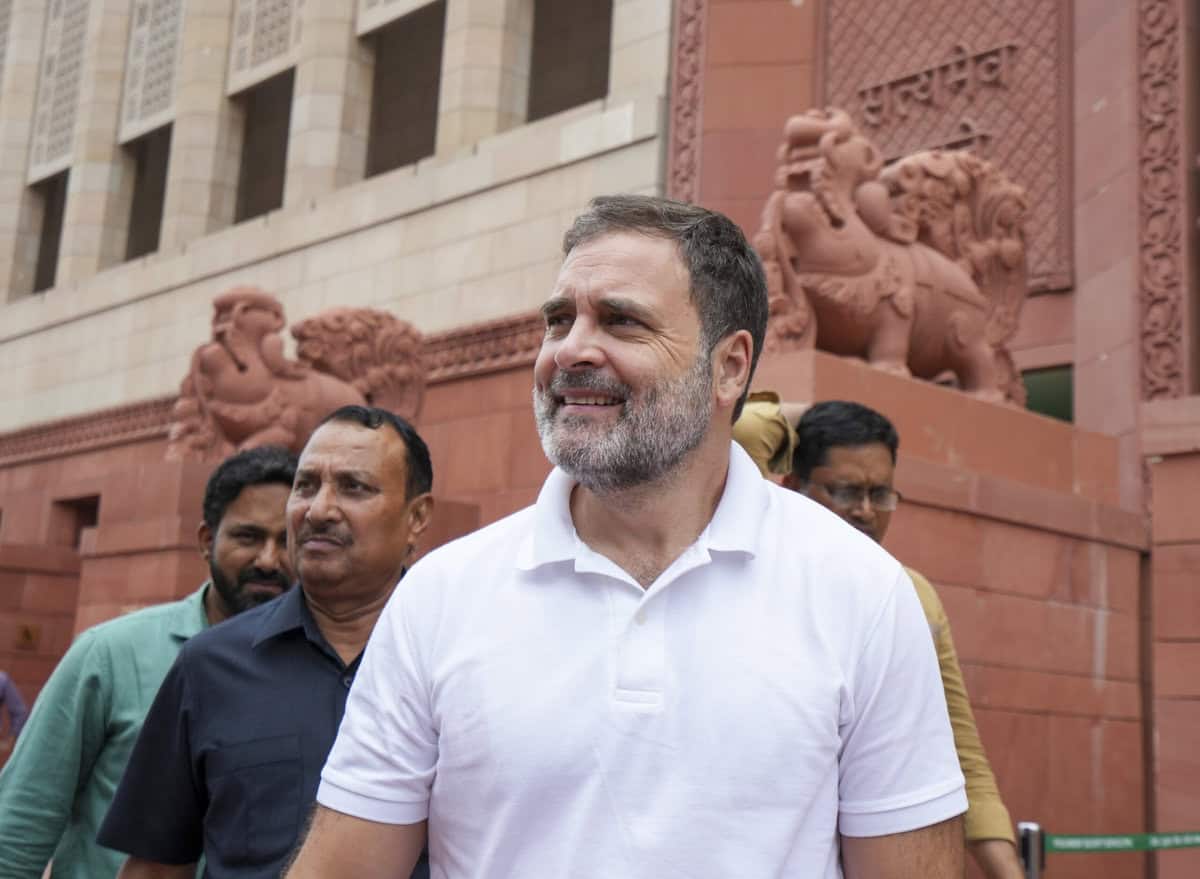
It might be too soon to judge how well Rahul Gandhi is shaping up as the new Leader of the Opposition (LOP) in Lok Sabha. The current budget session ends in just a few days, so we’ll need more time to understand his leadership fully. But he has begun well.
Since his victory in the Lok Sabha polls, Rahul has exuded remarkable confidence and strength, both within and outside the house. This assertiveness, a key trait for an opposition leader, clearly indicates his growing political acumen. He is keen on projecting himself as a leader who listens to the people and effectively communicates their concerns to the government.
Nobel laureate Amartya Sen recently discussed Rahul’s evolution since their days at Cambridge University. Sen underlined that Rahul has matured significantly over the years and underscored that his actual test lies in how he steers the Opposition in Parliament.
Rahul stepped into the Leader of the Opposition’s shoes a quarter of a century after his political debut in 2004. The Lok Sabha had been without a Leader of the Opposition for a decade, as no opposition party had the requisite members to stake the claim in the last two Lok Sabhas.
In the recent budget session, the first since he took over as LOP, Rahul Gandhi took on an important leadership role within his party and the Opposition. He led the Opposition-organised protests, confronted the Modi government on issues, and worked closely with allies. Additionally, he has made himself more accessible.
Rahul Gandhi’s backroom office, which is led by General Secretary K.C. Venugopal and includes key members such as Sam Pitroda, Sunil Kanugolu, K. Buju, B. Srivatsa, Manickam Tagore, Alankar Sawai, and Kaushal Vidyarthi, plays a crucial role in managing his political activities and election strategies. This team handles logistics, coordinates with allies, and manages his social media presence, shaping his political decisions and strategies.
Rahul has emerged as a more assertive leader, a significant departure from his previous image as a hesitant politician. The 2024 election results, where Congress doubled its tally, have bolstered his confidence. This transformation in his political journey has been intriguing. With a substantial number of opposition members in the 18th Lok Sabha, Rahul is finding it more accessible to adopt a more assertive role. The success of united allies in the 2024 polls has made them realise the power of unity.
When Rahul spoke as the Leader of the Opposition for the first time, he said, “While the government has political power, the Opposition also represents the voice of the Indian people. This time, the Opposition represents significantly more of the Indian people’s voice than it did last time.”
Rahul Gandhi’s criticisms of Prime Minister Narendra Modi have sparked strong reactions from the ruling party. During Rahul’s first speech as LOP, PM Modi intervened for the first time in 10 years. Modi accused Rahul of saying that the entire Hindu society is ‘violent’. The Prime Minister stated, “Democracy and the Constitution have taught me to take the Leader of the Opposition seriously.” Modi’s responses to Gandhi’s criticisms show an acknowledgement of the changed situation and the resulting tension in the Parliament.
Rahul Gandhi has been vocal in his criticism of the Modi government’s decision to arrest AAP chief Arvind Kejriwal and JMM chief Hemant Soren. He has consistently opposed the BJP’s attempts to suppress opposing viewpoints, which has led to increased tensions in Parliament. These tensions reflect the power struggle between the ruling party and the Opposition, with Rahul’s assertive stance contributing to the heightened political atmosphere.
Rahul has strategically used a small red pocket edition of the Constitution at public meetings. This astute move effectively highlighted what he termed the perceived threat to the Constitution from the BJP. His adept use of the Constitution has helped him garner support from reservation beneficiaries.
Despite being an M.P. for the past two decades, Rahul was not considered a good Parliamentarian. He asked only 99 questions, participated in 26 debates, and wasn’t always present at critical times. Since 2014, he has been noticeably absent during budget sessions, only appearing occasionally. He also frequently went abroad, leaving the party in a crisis.
So far, Rahul is performing admirably as the Leader of the Opposition (LOP). He has successfully gotten rid of his “pappu” image. The two Bharat Jodo yatras have given him more acceptability among the people. His further success will hinge on his political planning.
Rahul may have missed some opportunities in the past, such as becoming a minister in Manmohan Singh’s cabinet or strengthening the party as the Congress President. However, his current role as the Leader of the Opposition (LOP) demonstrates his potential. He must seize this opportunity to face future political challenges with confidence—the million-dollar question is whether he will. Rahul’s belief in the power of the LOP to raise its voice in Parliament instills hope and optimism in the party and its supporters.

